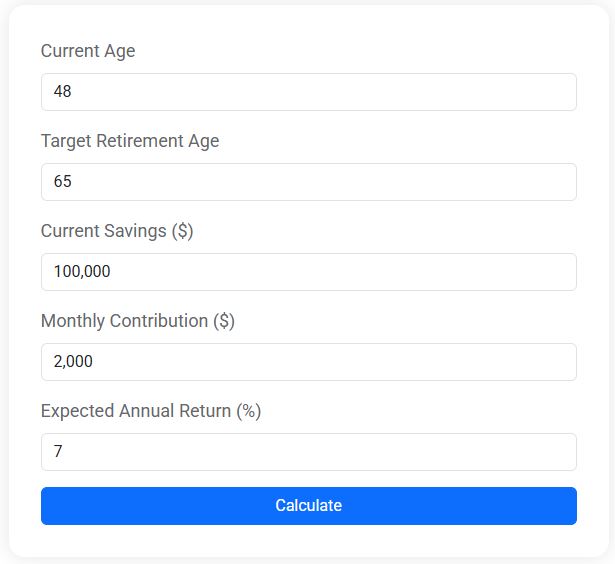Retirement and Healthcare: What You Need to Know

As you approach retirement, understanding healthcare costs is crucial for securing your financial future. Key considerations include grasping the intricacies of Medicare and supplementing it with plans like Medigap or Medicare Advantage, planning for long-term care expenses, and managing out-of-pocket costs. Additionally, it's important to account for healthcare inflation in your retirement strategy to ensure your savings can cover rising medical expenses over time.
As the golden years of retirement approach, many of us dream of spending our time traveling, pursuing hobbies, or simply relaxing. But as anyone who's been through it can tell you, securing a financially stable retirement requires more than just saving diligently. One critical piece of the puzzle is understanding healthcare costs, which can significantly impact your financial well-being in retirement. Navigating Medicare, choosing the right supplemental plans, and planning for long-term care are all part of the equation. And let's not forget about healthcare inflation, which could erode your savings if not accounted for properly.
The key is to approach retirement healthcare costs with a proactive mindset. If you're like most people, healthcare expenses are not just a line item in your budget; they're a significant part of your life. Let's dive into the details of what you need to know to ensure your healthcare needs are met without derailing your financial plans.
Understanding Medicare: The Basics and Beyond
Medicare is a central component of healthcare for retirees. It's broken down into different parts: Part A covers hospital insurance, Part B covers medical insurance, Part D is for prescription drugs, and then there's Part C, also known as Medicare Advantage, which is an all-in-one alternative to Original Medicare. While Medicare provides a foundation, it doesn't cover everything. For instance, dental, vision, and hearing care are not typically included in Original Medicare, so you'll need to consider how to cover these services.
According to the Centers for Medicare & Medicaid Services, the average retiree can expect to spend several hundred dollars a month in premiums and out-of-pocket costs, even with Medicare. It's crucial to understand what each part covers and where there might be gaps. For example, while Medicare Part A is usually premium-free if you've paid Social Security taxes for at least ten years, Part B requires a premium, and the cost can vary based on your income.
For many, the complexities of Medicare can be overwhelming. Financial advisor Jane Smith suggests, "It's worth sitting down with a Medicare specialist or a financial planner before making any decisions. The wrong choice today could cost you thousands over your retirement." Being informed about enrollment periods is also critical; missing them can result in penalties that last a lifetime.
Supplementing Medicare: Medigap and Medicare Advantage
While Medicare covers a significant portion of healthcare costs, it often leaves gaps that can be filled by supplemental plans. Enter Medigap and Medicare Advantage. Medigap, also known as Medicare Supplement Insurance, helps pay some of the healthcare costs that Original Medicare doesn't cover, like copayments, coinsurance, and deductibles. However, Medigap plans don't typically cover long-term care, vision, or dental care.
Medicare Advantage is another option. These plans are offered by private companies approved by Medicare and must provide at least the same benefits as Original Medicare, but they often include additional services like vision, hearing, and dental. The choice between Medigap and Medicare Advantage depends on your specific needs and budget. For instance, if you travel frequently, a Medigap plan might be more beneficial as it often covers you across the U.S., whereas some Medicare Advantage plans might have network restrictions.
As you weigh your options, consider your healthcare needs and lifestyle. CNBC reports that the average out-of-pocket spending for Medicare beneficiaries was over $5,000 in 2020. A well-chosen supplemental plan can help mitigate these costs. It's also wise to review your plan annually, as benefits and premiums can change.
Early Retirement Calculator
Thinking about retiring early? Our free Early Retirement Calculator helps you figure out exactly how much you need to save and invest to reach financial freedom sooner. Whether you're aiming for early retirement at 55, 50, or even 40, this tool gives you a personalized projection based on your current savings, monthly contributions, and expected return on investment. Start planning your path to financial independence today.
Planning for Long-Term Care Expenses
Long-term care is another critical consideration when planning for retirement healthcare costs. The U.S. Department of Health and Human Services estimates that nearly 70% of people turning age 65 will need some type of long-term care services in their lifetime. These services can range from in-home assistance to full-time care in a nursing facility, and they can be expensive.
One way to plan for these expenses is by purchasing long-term care insurance. While this type of insurance can be costly, it provides peace of mind by covering services not covered by Medicare. Another option is to include long-term care costs in your retirement savings plan. For example, you could allocate a portion of your retirement savings specifically for this purpose.
It's important to start planning for long-term care early. As financial advisor Mark Johnson notes, "The earlier you start planning, the more options you'll have available." Some people also consider hybrid policies that combine life insurance with long-term care benefits. These policies may offer more flexibility and can be a good fit for those concerned about premiums that might otherwise go unused.
Managing Out-of-Pocket Costs
Even with Medicare and supplemental insurance, out-of-pocket costs can add up quickly. These costs include premiums, deductibles, copayments, and any services not covered by your insurance plans. For many retirees, managing these expenses is a balancing act that requires careful budgeting and planning.
One strategy is to set aside a dedicated healthcare fund within your retirement savings. This fund can act as a buffer for unexpected medical expenses and help you manage costs more effectively. Health Savings Accounts (HSAs) are another tool, though they're only available if you have a high-deductible health plan before retirement. Contributions to HSAs are tax-deductible, and withdrawals for qualified medical expenses are tax-free.
It's also beneficial to be a savvy healthcare consumer. Shop around for the best prices on prescription medications, and don't hesitate to ask for generic alternatives. Websites and apps can help compare costs at different pharmacies. As AARP points out, retirees can save hundreds annually by choosing the most cost-effective options.
Accounting for Healthcare Inflation
Healthcare costs have been rising faster than general inflation for years, and this trend is expected to continue. According to Fidelity Investments, a 65-year-old couple retiring in 2023 can expect to spend an average of $315,000 on healthcare costs in retirement, not including long-term care. This figure highlights the importance of accounting for healthcare inflation in your retirement planning.
One way to combat healthcare inflation is by investing in growth-oriented assets during your working years. Stocks, for example, have historically outpaced inflation and can help your savings grow over time. However, as you approach retirement, it's wise to gradually shift to a more conservative investment mix to protect your nest egg from market volatility.
Additionally, regularly reviewing and adjusting your retirement plan can help ensure you're prepared for rising healthcare costs. This might include increasing your savings rate or revisiting your investment strategy to ensure it aligns with your long-term goals.
As you approach retirement, it's essential to keep informed and proactive about healthcare costs. By understanding the intricacies of Medicare and supplemental plans, planning for long-term care, managing out-of-pocket expenses, and accounting for healthcare inflation, you can safeguard your financial future and enjoy a more secure and fulfilling retirement.








